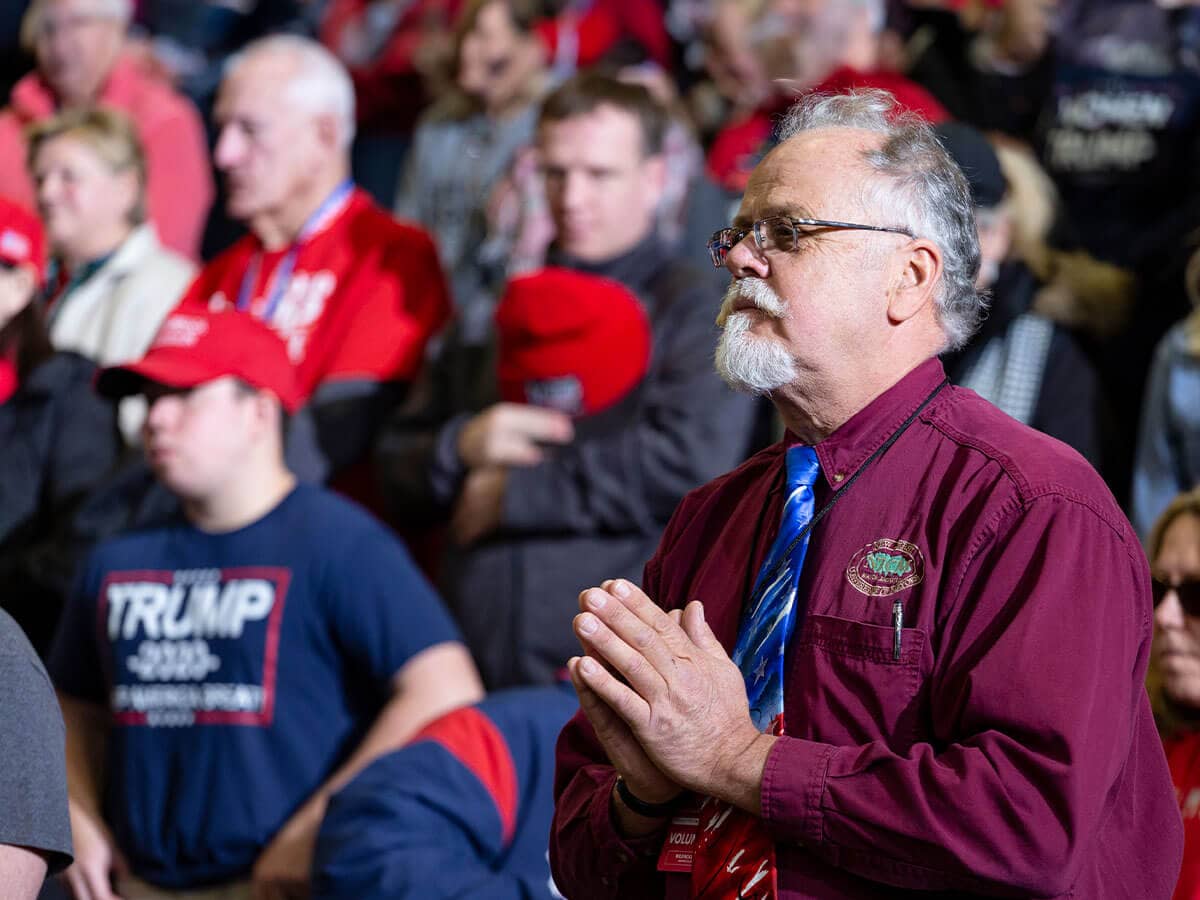The votes all carried by 2-to-1 ratios, and the results were expected. The votes were overshadowed by an emotional protest that brought the denomination's top decision-making body to a standstill and resulted in arrests of at least 27 people, including two church bishops.
During two emotionally wrenching sessions, more than 200 activists disrupted the meeting by storming the convention floor and circling the auditorium to protest the votes. After taking a break and entering into prayer, delegates voted to allow the protesters to remain on the convention floor throughout the end of debate.
But when delegates reconvened after lunch and voted to prohibit same-sex unions, more than two dozen protesters blocked the stage of the auditorium and vowed not to leave unless they were arrested. Several Cleveland police officers led them offstage without handcuffs.
Lt. Sharon MacKay of the Cleveland Police Department said the arrestees face charges of disrupting a lawful meeting--a misdemeanor--with a maximum punishment of $250 and/or 30 days in jail, plus court costs. MacKay said the arrestees could be in jail over the weekend before a court hearing on Monday. Bishop Joseph Sprague of Chicago, who was also arrested in an earlier demonstration Wednesday, and Bishop Susan Morrison of Albany, N.Y., were arrested with the protesters. Also arrested was the Rev. Gregory Dell, a United Methodist pastor who was suspended from ministry for performing a same-sex union ceremony.
Randy Miller, a gay California layman, spoke for the protest group and said the church had broken its covenant with homosexuals.
"Neither height nor depth nor legislation of this church will deprive us of the love of Jesus Christ," Miller said.
The votes and the demonstration brought many delegates to tears.
"The United Methodist Church, while we say we accept all people, we still put qualifications...and close the doors to some people," said a tearful Rebecca Carver, an Iowa pastor and delegate. "That to me is painful, and I pray that will change."
At the height of the morning demonstration, a woman threatened to jump from the arena's balcony but was held back by others. "I am gay, I have been gay all my life, and I love God," the woman said before attempting to jump.
The United Methodist Church--the nation's second-largest Protestant body with 8.4 million members in the United States and another 1.4 million overseas--is meeting here this week for its quadrennial General Conference to set policy and doctrine. The meeting is set to wrap up on Friday.
The church has become ground zero in the battle for more inclusion of gays in church life since the General Conference last met in 1996. Because of a series of seemingly contradictory rulings on same-sex union ceremonies, pro-gay activists had hoped this meeting would bring a change in policy.
The issue brought this year's meeting to its knees as 191 people were arrested on Wednesday after they blocked the driveway to the convention center in protest of anti-gay policies.
One of the church's most divisive statements calls the practice of homosexuality "incompatible with Christian teaching" and has served to mold the church's doctrine on such related issues as ordination and same-sex unions. Delegates voted 628-337 to retain the statement.
"Let us seize this opportunity to step into the love of God," West said. "Is there not already enough hate, enough war, enough prejudice, enough use of the Bible to discriminate on the basis of sexual orientation? Let us worry about the ones Jesus calls us to care about--the oppressed."
On the issue of prohibiting the ordination of "self-avowed practicing homosexuals," delegates voted 640-317 to uphold the ban.
After delegates had voted to continue the "incompatibility" language, many said lifting the ordination ban would be inconsistent. "We are a people...who want the church to be a place where all are welcome and where grace abounds," said a delegate, the Rev. Mark Fenstermacher of Elkhart, Ind. "But while we are a people of grace, we are also a people of [biblical] truth."
Delegates voted 646-294 to keep the ban on same-sex unions and also defeated a motion that would have changed the wording of the prohibition from "shall not" to "should not."
The protesters had informed bishops they would storm the floor if the homosexuality language was upheld, but the church was unprepared for the demonstration that resulted in their arrest.
Bishop Dan Solomon of Louisiana, who was presiding over the session, was at a loss for words when the protestors took over the stage. When they announced their intention to be arrested, Solomon was stunned.
"I can not watch what is about to happen in the United Methodist Church," he said.
The protests and the three votes left many unsure of the future of the denomination, which meets again in 2004. The General Conference is the only body that can speak for the entire church and meets only once every four years.
Several bishops tried to strike a hopeful note during a press conference, but pro-gay activists were not persuaded. Still, they vowed to continue to lobby the church on its stand.
"This is not a time of drawing a line in the sand," said Bishop Robert Morgan of Louisville, Ky., a past president of the church's Council of Bishops. "I think the commitment of the people is to stay together. We would not want to lose even one person over this."

